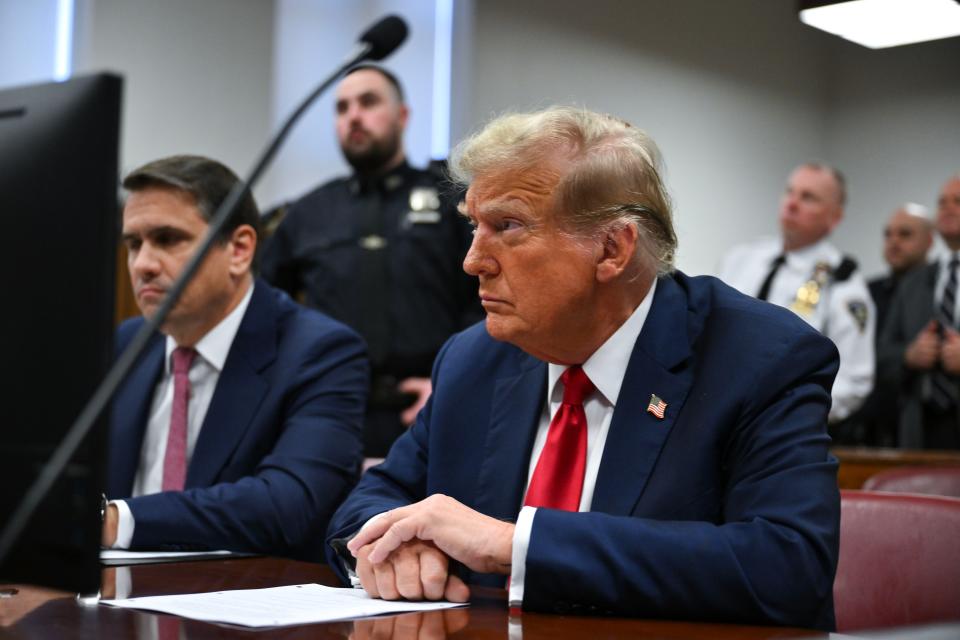What is hush money? Donald Trump isn't charged with paying porn star, but hiding it
- Oops!Something went wrong.Please try again later.
- Oops!Something went wrong.Please try again later.
- Oops!Something went wrong.Please try again later.
Former President Donald Trump isn’t charged with making a $130,000 payment to porn actress Stormy Daniels in exchange for a non-disclosure agreement, but for allegedly falsifying business records to hide the payment.
In addition, Manhattan District Attorney Alvin Bragg elevated the charges from misdemeanors to felonies by alleging they were connected to other criminal activity, which he didn't specify. One option for the additional crime Bragg outlined is a campaign finance violation because buying Daniels’ silence before the 2016 election could have influenced the outcome.
Bragg described the payments to Daniels and another woman, former Playboy model Karen McDougal, as part of a “catch-and-kill” strategy to prevent the women from telling their stories. But the criminal charges are that Trump falsified his company’s business records to conceal the payments.
"The core is not money for sex," Bragg said in a radio interview in December. "We would say it's about conspiring to corrupt a presidential election and then lying in New York business records to cover it up."

Trump’s former personal lawyer, Michael Cohen, has testified to Congress he arranged the payment to Daniels and Trump reimbursed him a total of $420,000 for the payment, his tax liability and a bonus, through a series of monthly $35,000 payments.
Cohen pleaded guilty and served time in prison on a campaign finance violation as part of a broader federal case. Contributions to federal campaigns from individuals are strictly limited to a few thousand dollars per person.
Trump has said the payments were a retainer for Cohen’s services, which Cohen denied in sworn testimony. Trump also argued he was paying for a non-disclosure agreement, a private contract that had nothing to do with the campaign.
Trump tweeted in May 2018 that Cohen "received a monthly retainer, not from the campaign and having nothing to do with the campaign," as reimbursement for "a private contract between two parties, known as a non-disclosure agreement."
This article originally appeared on USA TODAY: Trump trial not about hush money but hiding it in business records

